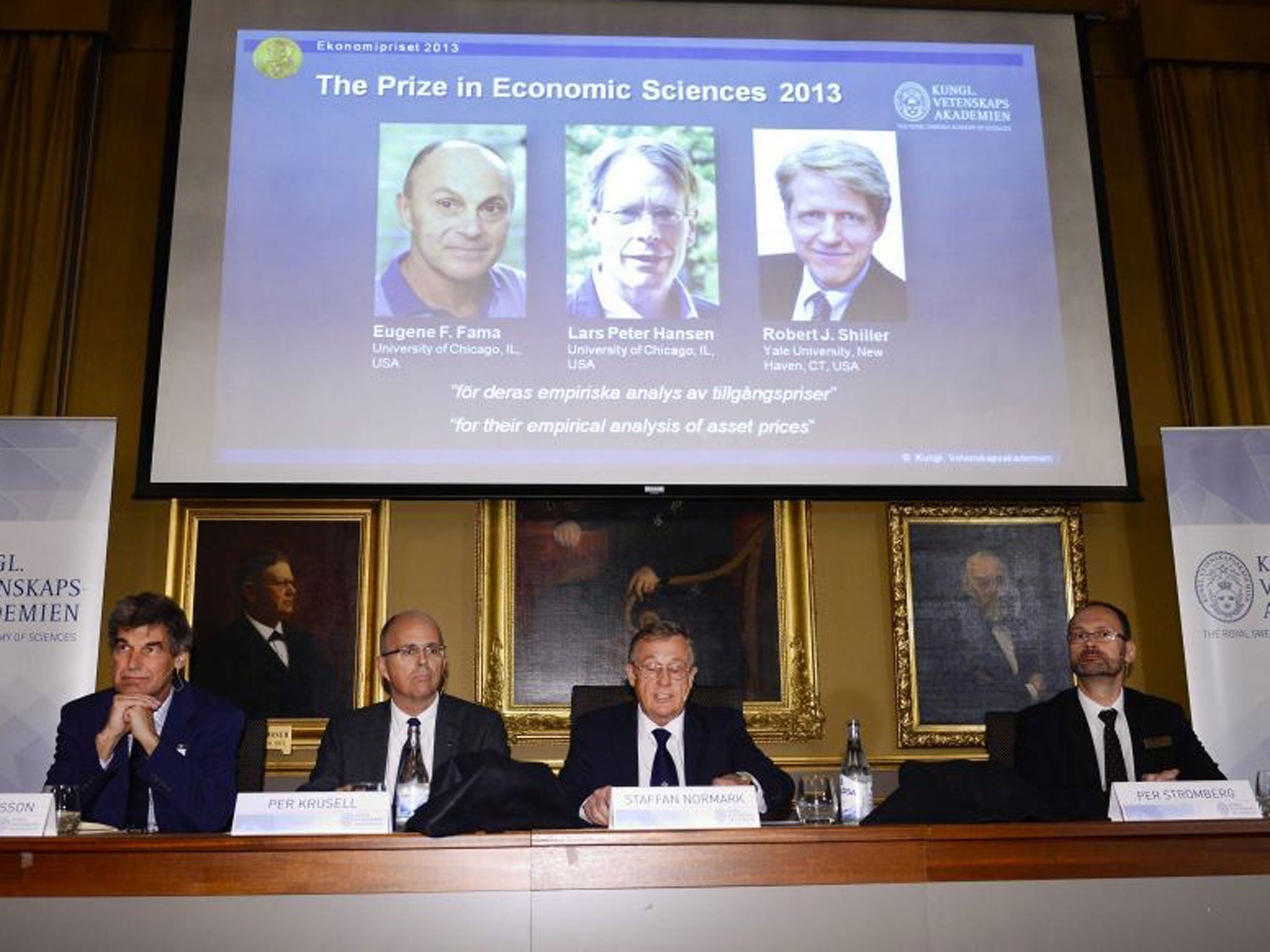Joint Nobel prize goes to economists with rival theories: US trio Eugene Fama, Lars Peter Hansen and Robert Shiller share award
Three Americans rewarded with $1.2 million prize for work on predicting global financial markets

Three American economists with conflicting views over the functioning of financial markets have been jointly awarded the prestigious Nobel economics prize.
Eugene Fama and Lars Peter Hansen, both of the University of Chicago, along with Robert Shiller of Yale, were given the accolade collectively yesterday by the Royal Swedish Academy of Sciences for their “empirical analysis of asset prices”.
Professor Fama, 74, is one of the fathers of the so-called efficient markets hypothesis which holds that the prices of stocks and bonds are “rational” because they reflect all available public knowledge about those securities at any given point in time.
Professor Shiller, 67, on the other hand, made his name by pointing to a persistent irrationality in such markets. He said that the value of securities tends to jump around much more than the expected value of their future expected stream of dividend payments.
Professor Shiller has also warned of the dangers of investors’ “irrational exuberance”, which can pump up destabilising asset price bubbles.
Professor Fama, by contrast, is sceptical over whether speculative bubbles truly exist, arguing that busts are mostly a reflection of developments in the real economy.
“No one saw these guys sharing a prize. Fama is the father of efficient market theory, Shiller is the father of inefficient market,” said Justin Wolfers of the University of Michigan.
Professor Hansen, 60, developed a pioneering statistical method which tests various theories of rational asset prices known as a generalised method of moments. “The laureates have laid the foundation for the current understanding of asset prices,” said the Academy in a statement. “It relies in part on fluctuations in risk and risk attitudes, and in part on behavioural biases and market frictions”.
The prize is worth 8m Swedish kronor (£775,000) and will be split equally between the three winners.
Subscribe to Independent Premium to bookmark this article
Want to bookmark your favourite articles and stories to read or reference later? Start your Independent Premium subscription today.

Join our commenting forum
Join thought-provoking conversations, follow other Independent readers and see their replies